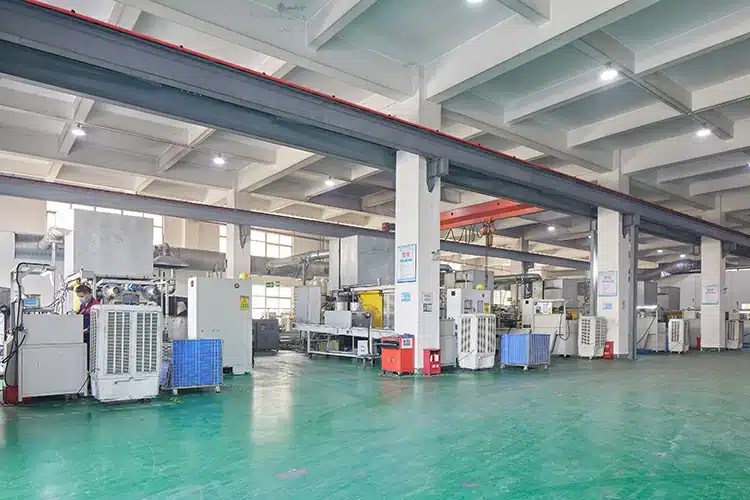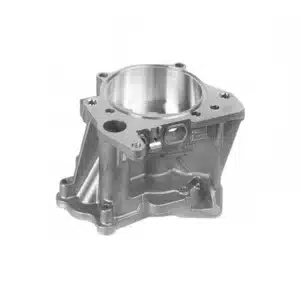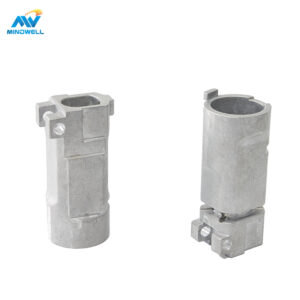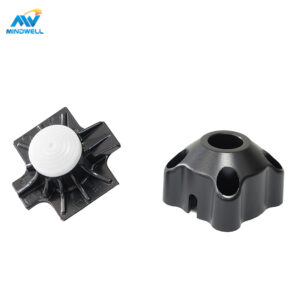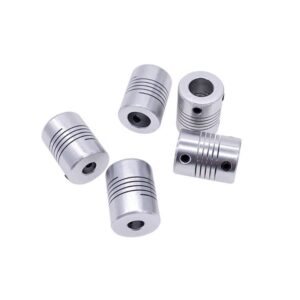Aluminum die casting components are essential parts of many industries, offering a wide range of benefits and applications. With their versatility, strength, and durability, these components play a crucial role in various sectors, including automotive, aerospace, electronics, and more.
| Tolerance | +/-0.002mm +/-0.005mm |
| Tratamento de superfície | Anodize, Bead blasted, Silk Screen, PVD Plating, Zinc/Nickel/Chrome/Titanium Plating, Brushing, Painting, Powder Coated, Passivation, Electrophoresis, Electro Polishing, Knurl, Laser/Etch/Engrave, etc. |
| Surface Roughness | Min Ra0.1~3.2 |
| Quality Inspection | 100% QC Quality Inspection |
| Drawing Accepted | Stp, Step, Igs, AutoCAD(DXF, DWG), PDF, or Samples |
| Quality Assurance | ISO9001:2015, SGS, RoHs, TUV |
| Payment Terms | Trade Assurance, TT, PayPal, Western Union |
| Lead Time | 3-7 Days for Samples, 2-4 Weeks for Mass Production |
What is Aluminum Die Casting?
Aluminum die casting is a manufacturing process that involves injecting molten aluminum into a mold cavity under high pressure. The molten metal solidifies quickly, taking the shape of the mold and creating complex and precise components. This process allows for the production of high-quality parts with excellent surface finish and dimensional accuracy.

Advantages of Aluminum Die Casting Components
There are several advantages to using aluminum die casting components:
- Lightweight: Aluminum is known for its lightweight properties, making it an ideal choice for applications where weight reduction is crucial, such as the automotive and aerospace industries.
- Strength: Despite their lightweight nature, aluminum die casting components offer exceptional strength and rigidity, ensuring the durability and longevity of the finished products.
- Resistência à corrosão: Aluminum has natural corrosion-resistant properties, making it suitable for applications in harsh environments or exposed to moisture.
- Heat Dissipation: Aluminum has excellent thermal conductivity, allowing for efficient heat dissipation, making it suitable for components that require cooling.
- Complex Shapes: The die casting process enables the production of intricate and complex shapes with tight tolerances, reducing the need for additional machining.
- Cost-Effective: Aluminum die casting offers a cost-effective solution for mass production, as the process allows for high production rates and minimal material waste.
Applications of Aluminum Die Casting Components
Aluminum die casting components find applications in various industries.
- Automotive: Aluminum components are widely used in the automotive industry for engine parts, transmission cases, chassis components, and more.
- Aerospace: The aerospace industry utilizes aluminum die casting components for aircraft structural parts, engine components, and interior fittings.
- Electronics: Aluminum die casting is commonly used in the electronics industry for heat sinks, housings, and connectors.
- Appliances: Many household appliances incorporate aluminum die casting components, including refrigerators, air conditioners, and washing machines.
- Telecommunications: Aluminum components are also found in telecommunications equipment, such as antennas and satellite systems.

Quality Assurance in Aluminum Die Casting
Ensuring the quality of aluminum die casting components is crucial to meeting the stringent requirements of various industries. Quality assurance measures include:
- Process Control: Implementing strict process controls throughout the die casting process, including monitoring temperature, pressure, and cooling rates.
- Inspection: conducting thorough inspections at each stage of production to identify any defects or imperfections.
- Testing: performing various tests, such as dimensional checks, mechanical testing, and surface finish analysis, to ensure the components meet the required specifications.
- Certifications: obtaining certifications, such as ISO 9001, to demonstrate compliance with international quality standards.
Conclusão
Aluminum die casting components offer numerous advantages, including lightweight, strength, corrosion resistance, and complex shapes. They find applications in various industries, such as automotive, aerospace, electronics, and appliances. Ensuring quality through strict process controls, inspections, and testing is essential to meet industry standards and deliver reliable components.
